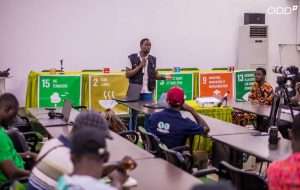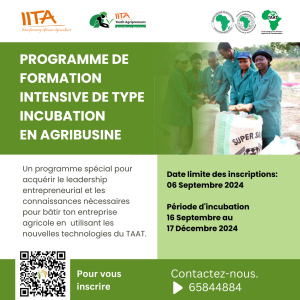Empowering Lusaka Youth in Sustainable Fish Farming
Lusaka, Zambia – [Month, Year]: Eleven enthusiastic young people from Lusaka recently completed a
two-day fish farming training program, equipping them with the skills and knowledge to become
successful aquaculture entrepreneurs. The program, held at IITA-SARAH on October 28th and 29th,
2020, was a collaborative effort aimed at empowering youth and promoting sustainable food
production.
The training focused on providing participants with a comprehensive understanding of fish farm
management. Key topics covered included:
Site selection and pond construction: Participants learned the crucial steps involved in choosing the
ideal location for their fish pond and the proper techniques for pond design and construction.
Effective pond management: Trainees gained valuable knowledge on maintaining optimal water quality
and creating a healthy environment for fish growth.
Feed calculations and fish nutrition: Understanding proper fish feeding practices is essential for optimal
fish health and production. The program equipped participants with the skills to calculate feed
requirements and ensure their fish receive a balanced diet.
Disease prevention and mitigation: Recognizing and preventing common fish diseases is crucial for
successful aquaculture. The training covered disease identification, prevention strategies, and treatment
methods.
Financial management: Learning the fundamentals of record-keeping and profit and loss analysis
empowers participants to make informed business decisions and ensure the financial sustainability of
their fish farming ventures.
Beyond theoretical knowledge, the program offered a valuable hands-on experience. Participants
actively participated in constructing a fish pond, solidifying their understanding of the practical aspects
of fish farming.
“The training not only provided us with the knowledge to manage a fish farm but also gave us the
confidence to put that knowledge into action”; shared a program participant. “We are excited to use
these skills to establish our own fish farming businesses and contribute to Zambia’s food security.”
This program serves as a testament to the potential of empowering young people to drive innovation
and contribute to sustainable food production in Zambia. By equipping them with the necessary skills
and knowledge, we can cultivate a generation of successful fish farmers who will play a vital role in
meeting the growing demand for healthy and sustainable protein sources.
More Benin Stories

Empowering Youth in Benin: ENABLE TAAT and Impact Generation Host Ecological Agriculture Event


